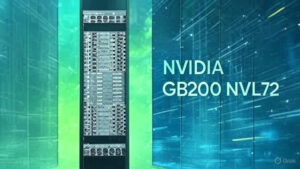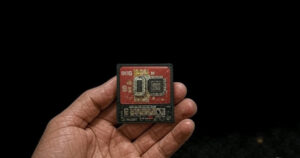
Microsoft has unveiled Majorana 1, a groundbreaking quantum chip powered by the world’s first Topological Core architecture. This innovation brings the dream of practical quantum computing closer than ever, with the potential to solve industrial-scale problems in years rather than decades.
What is Quantum Computing?
Quantum computing is a revolutionary approach to computation that leverages the principles of quantum mechanics, the branch of physics that describes the behavior of particles at the atomic and subatomic levels. Unlike classical computers that use bits (0s and 1s), quantum computers use qubits, which can exist in multiple states simultaneously due to superposition. This allows them to perform complex calculations exponentially faster than traditional computers.
Another key property of quantum computing is entanglement, where qubits are correlated in such a way that the state of one qubit directly influences the state of another, regardless of the distance between them. These properties make quantum computers uniquely suited for solving problems that are computationally infeasible for classical systems.
A New Frontier: The Topoconductor
At the heart of Majorana 1 lies a topoconductor, a revolutionary material capable of harnessing and controlling Majorana particles. These exotic quantum particles enable the creation of more reliable and scalable qubits, the fundamental units of quantum computation. This breakthrough could be as transformative as the invention of semiconductors, paving the way for quantum systems that can scale to a million qubits and beyond.
Reinventing the Quantum Transistor
Microsoft’s approach to quantum computing is built on a crucial question: What properties should a quantum transistor have? According to Chetan Nayak, Microsoft Technical Fellow, the answer lies in new materials and a novel architecture that allow qubits to be packed more densely and controlled more efficiently. This enables a million-qubit chip small enough to fit in the palm of a hand—an essential milestone for solving real-world problems.
Transformative Applications
A million-qubit quantum computer will vastly outperform today’s classical computers, unlocking new possibilities in:
- Environmental science: Breaking down microplastics into harmless byproducts.
- Material science: Developing self-healing materials for construction, healthcare, and manufacturing.
- Chemistry: Designing non-toxic plastics and catalysts to combat pollution.
- Healthcare and agriculture: Enhancing enzyme applications to boost food production and fight global hunger.
Engineering a Scalable Quantum Future
Quantum computing has long been hindered by qubit instability and control complexity. Majorana 1 addresses these challenges with:
- Error-resistant hardware: Built-in error correction at the physical level.
- Digital qubit control: A simpler and more scalable alternative to analog tuning.
- Compact design: Avoiding the need for massive, impractical machines.
Microsoft’s Quantum Roadmap
Microsoft has spent nearly two decades developing topological qubits, a high-risk, high-reward approach to quantum computing. While Majorana particles don’t exist in nature, Microsoft has successfully created and measured them—an achievement confirmed by a peer-reviewed study in Nature. This technological leap is reshaping how quantum computing operates at scale.
A Step Toward Utility-Scale Quantum Computing
Microsoft’s leadership in quantum innovation has earned it a place in DARPA’s Underexplored Systems for Utility-Scale Quantum Computing (US2QC) program. This initiative aims to build the world’s first fault-tolerant quantum computer, proving that commercial-scale quantum systems can be realized sooner than expected.
Quantum + AI: A Revolutionary Partnership
The integration of quantum computing and artificial intelligence could redefine technological progress. AI-driven quantum solutions will allow scientists and engineers to design perfect materials, molecules, and solutions from day one, eliminating guesswork and years of trial and error.
The Future is Quantum
Microsoft’s Majorana 1 chip marks a significant milestone in quantum computing, bringing scalable, reliable, and commercially viable quantum solutions within reach. With its Topological Core architecture, digital qubit control, and cutting-edge materials, Microsoft is leading the charge toward a quantum-powered future.
As quantum computing continues to evolve, one thing is clear: we are no longer decades away from quantum breakthroughs—those breakthroughs are happening now.




